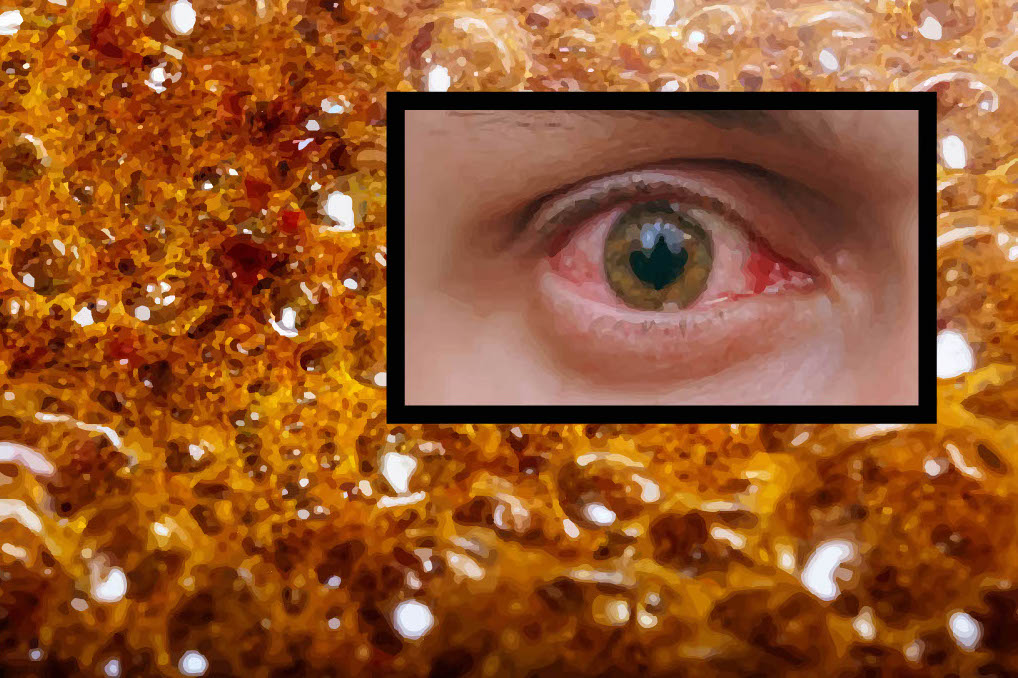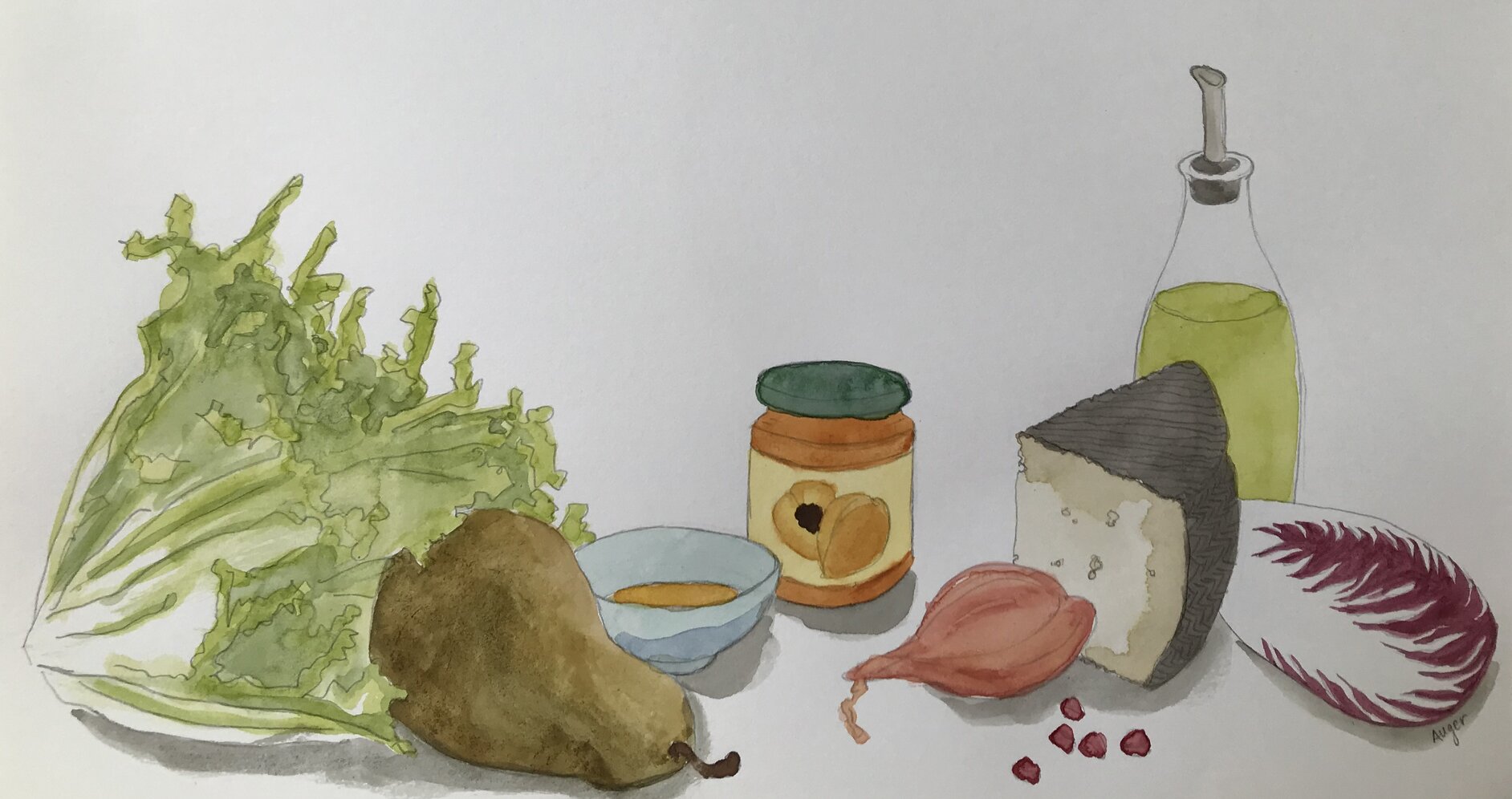In the months afterward, I thought of her every time I got high. Which is to say: often, but not as often as everybody else I know.
Discussion of her bled into every post-close blunt rotation. Sitting on Teddy’s crusty beige carpet, we tried talking about other things—tattoos, girlfriends, how a grill guy two towns over knocked up his teenage coworker—but mentioning work inevitably led either to speculation on her whereabouts or, if we were still too tired or sober, a thick silence.
We spent weeks like this, whispering on backdoor smoke breaks or crowded three deep in Cheyanna’s dusty backseat on the way to the bars. Local mythology to be chewed over and over like gristle, picked apart beneath clicking lighters by line cooks and burrito rollers whose shifts never overlapped with hers by more than fifteen minutes. As soon as shit started burning, her name was there, in shallow puffs and hums: Creepy Mish. Mish the freak.
Misha, Misha, Misha.
Mish joined us halfway through her junior year. When pressed, nobody could remember what she studied—the only kid who’d ever shared a class with her at the nearby university no-call no-showed after two weeks—but we were all pretty sure it was something artsy. Or maybe international affairs. Crybaby Elsie insisted she was pre-med, but she also thought the walk-in was soundproof enough to hide her fifty daily screams, so nobody took her seriously.
Anyway, it didn’t really matter. Mish had good weekend availability, had worked at three other chain locations for three previous summers, and turned up showered and on time for both interviews. This was more than enough for the general manager, whose prerequisites for cashiers began and ended with “tits yes, crying no.”
Mish wasn’t a crier, but she didn’t have much in the way of anything else, either. Most of the other cashiers were lean and pretty, sleek from years of volleyball or lacrosse. They wore their hair in high, tight ponytails fed over their hats’ Velcro closures and carried ice buckets from the back with both hands, one at a time. Mish was scrawny and bald as a tea egg, with black fish eyes. She shaved her head well into the winter, hid the stubble and the rest of her inside a ratty hoodie in the cool hours before the doors opened. Months back, a short-lived manager asked why she didn’t just grow it out.
“Because my boyfriend pulls it,” she said casually. Mish was always saying shit like that casually. “Behind.”
She was an all right cashier. Sometimes she’d fuck around with the customers a little too much and eat her foot. Dog somebody out for wearing a Reagan t-shirt, conveniently forget to complete transactions for crustpunks and working moms. Early on, somebody taught her to pad the tip jar with a couple ones on top of a crushed paper cup to make it look full—to a customer, an empty jar was probably empty for a reason—and check the change counter every so often for forgotten coins.
On Midwest minimum wage, the jar was serious business. Like, the difference between putting a dollar fifty of gas in your car or hoofing it down the side of the highway in the dark serious. Whoever taught her the cup trick also taught her the prettiest, sweetest cashiers made the best money, so she showed up to every closing shift with a brand-new face, plucked and contoured for an hour before the mirror on her bedroom floor. In the summer, when business was slow, she wore tiny shorts, lined bags of chips on the lowest shelf, and bent at the waist to grab them. So obvious, dinner and a show, but it was hard to make fun when we all went home at 1 a.m. five or ten or twenty bucks richer.
She must have needed the money. We all did, but she was the one answering the phones, looking up at bored dads and grads through eyelashes caked thick with mascara. She was the one collecting numbers on brown napkins, scribbled with pens borrowed unasked from the cup beside her register. More than once, we walked together to her beat-up little car in case the guy waiting in the dining room followed her out.
“Your boyfriend can’t pick you up?” I asked her once while we were running trash, holding a dripping bag at arm’s length. Laden with bags of her own, she leapt back from the arc of lime and bean juice as I heaved mine one-handed into the dumpster. Under the streetlights, her eyes looked like painted tunnels.
“No,” she said. “Keep holding that open. I need both hands.”
Nobody knew Mish’s boyfriend. Nobody knew where she was from or where she lived either, which made us pretty much useless when the cops bothered showing up. I remember one of the line guys—Cody? Jody?—was holding an eighth in his jacket for after close, and when the dogs came he pretended to get suddenly squeamish so they would let him into the bathroom to flush it. Like he was just now getting sick over something he’d seen forty minutes ago.
According to Cheyanna, who fucked a lot of cops, the address Mish put on her application was a bust, too. Mish’s roommate hadn’t seen her in weeks and it wasn’t like campus police were gonna sit around staking the place out. City police weren’t either (“Wow, really moving up in the world, Cheyanna. What’s next, the FBI?” said Teddy the grill opener, which earned him a punch) and the trail went cold there. No pings in the system, no checkered past.
“But for real though?” Teddy ashed his cigarette onto the asphalt, breathing clouds. “It’s always the quiet ones. Remember that time we invited her out and she blew into the bong?”
“Oh my god, she did not,” said Crybaby Elsie, who was on keto and eating baby carrots with her mouth open. “What a fucking freak.” Then: “Don’t fuckin’ look at me like that, K.”
I wasn’t looking at her like anything, just smoking at the small and overcast sky. Across the chain-link, the Starbucks drive-thru line stretched long into the adjacent parking lot. Usually, when school was in session, college students trooped between them and us in packs, with a line to both doors from open to close. A positive feedback loop: caffeine to pick them up, burrito to lay them out. Eat, sleep, fuck, get high. Like foxes and dolphins, fighting to placate their oversized brains.
Now, though. Now they were lining up down the street at Wendy’s instead.
The night of the bong incident wasn’t the first time Mish had gone out with us. She’d swung by the bars for a drink once or twice, said something off-color and dipped before last call. Honestly, I’m not even sure Teddy meant to invite her, but she showed up to his place at midnight with her makeup rubbed off all the same. I stepped out for a smoke a couple minutes afterwards and Irish goodbyed when it made my migraine worse instead of better, so everything that happened next was relayed to me later in detail. The setting was easy: Teddy’s greasy apartment. Cheap furniture, dead houseplants. Six people swapping germs on blunts rolled in tropical wrappers. Half an empty two liter floating in the kitchen sink. The bong came around and Mish, who’d been talking incessantly about one of her tattoos, took it by the neck and, with all the confidence in the world, blew the bowl clear across the room. According to Cheyanna, who’d been in the splash zone, a full foot of carpet was drenched in ancient resin.
“Don’t take this the wrong way,” Teddy said, half to me and half to the silent figure shoveling ice behind the dish sink the following afternoon, “but that was the funniest shit I’ve ever seen in my life.”
It really wasn’t a big deal. The closers ribbed her for a few days and then Cody-Jody became the new clown for cutting his fingertip off right before an inspection. But Mish didn’t ask to tag along anymore. She still comped meals and dogged out customers, still put herself on display to survive the cavern between paychecks, but the embarrassment stayed on her.
She loved us. I know she did. She’d come back from her break laden with half a dozen Starbucks cups, walk into the back twice after close so she wouldn’t miss anybody doling out tips. “Bonus from the parking lot,” she said once, dropping a twenty into the jar. I remember Cheyanna asked why she told us, why she didn’t just keep it. Mish just blinked those black eyes.
“Why would I do that?” she asked. Sounded like she meant it, too.
What happened was the store had this curved bench that separated the front line from the main dining room. About armpit height on Mish, maybe a little lower on me. Bleached wood on top and on the seat to match the walls, and corrugated steel studded with rivets on the back. A lawsuit waiting to happen, just itching for some kid to trip on his shoelace so it could tear into his cherubic blond skull. A couple feet down, pitted concrete floors smooth from three weeks of Norwalk bleach scrubbing.
We were just starting the dinner rush, 5:45 to 7:15. All us animals sweating behind the sneeze guard and shouting over corporate’s looping playlist of Songs to Kill Yourself To. Mish, trapped at the register for an uninterrupted hour, ready to receive the masses. The first face in arm’s reach.
That evening, I was about ten hours into what was supposed to be an eight-hour shift, with another five, maybe six to go. Too tired and hot to think. Laying meat on autopilot. Barking back calls, watching piles of meat in quarter pans diminish in the reflection of the sneeze guard. Slugging warm Red Bull between breaths and dreaming of the cigarette I’d smoke in exactly thirty-six minutes.
And then some guy walked up to the register. Crew cut, red baseball hat. Indians jersey. Couldn’t tell you anything else.
There’s this funny thing about people. If you see enough of them, you start forgetting you are one. They melt together into a seething, indolent slurry. Not like you, though. You’re different. Under the most specific of circumstances, you actually possess the innate capacity to be a hero. At the last moment, a switch would flip and you’d catch the baby, break up the fight, throat chop the shooter. It would be you.
But it wasn’t. For the next few minutes, we were all useless together.
I saw Mish in the wild exactly once, about a month before that guy put his hands on the counter. With nothing but cornfields and meth labs in every direction, kids got creative and one of the locals had incredibly cool parents. They let him convert their unfinished basement into a venue for bands nobody had heard of, friends three times removed touring flyover states to play crowds of twenty, max. I’d been there since the opener, so close I could smell the amps. Drenched and seeing stars, teeth ringing from the physical force of noise. Sweat and cigarette smoke transfigured the air to living ambrosia.
Mish stood at the edge of the pit by the pebbly merch table. La Croix in one hand, CD folded in a makeshift paper sleeve in the other. She moved like a reed rooted to the lakeshore, rose to her toes, back down in time. Behind her, graffiti climbed to the ceiling in a technicolor halo.
I should’ve said something. Got her attention and pulled her into the crush of bodies. Been the hero. But then it got rowdy again and somebody’s boot heel raked my shin and by the time I thought of her again, it was morning.
What happened was Mish had a bad day. First thirty minutes of her shift, she answered the phone, told the guy on the other line something he didn’t want to hear and then hung up without a word after he shouted “FUCKING CUNT!” loud enough to carry into the kitchen. Then the Gourmand—easily our worst and somehow most loyal regular—appeared, demanding his steak cooked to charcoal briquettes and his salsa sans onion. Must’ve been a full moon because he dug into Mish too, even though hers were probably the only hands that hadn’t touched his flavorless burrito. Outside, it got dark quick and the sky dumped gallons of stinking rain for hours. That meant wrestling slimy anti-slip mats from beneath the soda machine in the moments between customers. By peak, back of house was a sauna. Everybody who came down the line was drenched and pissed and looking for someone to snip at for that tiny power trip.
Mish had just turned away from the register for a second to comment on the half-eaten chicken nuggets she’d just found beneath a table (“Where did they get chicken nuggets from?!”) when he arrived. College boy with his whole life in front of him. He walked up to the counter, waited patiently for Mish to turn around and then, smiling, wrapped an arm around the tip jar.
It was not a subtle move. The jar was a stainless steel cylinder with bills blooming from its mouth. Despite the rush, almost everything inside was small change. Nine bucks, forty-eight cents exactly. Enough for one meal here, if you skipped the drink.
It was ours, though.
What happened next happened fast. Guy turned on his heel to run for the door, but Mish was already around the counter. She caught a fistful of his jersey, Chief Wahoo’s grinning face crushed between her fingers, and he went down. Face-first, with an awful crunch, into the corrugated bench. Coins flew in arcs like rice at a wedding.
He wasn’t screaming, though. Not until Mish got him on his back and pinned his shoulders between her knees. Rice in the treads of her nonslip shoes, a gash through his right cheek opening into flesh like lean, raw pork chop. When he did make noise, it came out sharp—a high squeal between his teeth.
And Mish didn’t say a word. She just nestled each thumb into the pink corners of his eyes and pushed.
He should’ve been able to fight her off, nearly did until the pain and shock made his muscles seize. Any of us could’ve wrestled her to the bleached floor, but his face was swallowing her thumbs to the knuckle. A wash of brown water, displaced by the weight, rose from the sodden mat beneath them to meet the hot, gelatinous cascade filling his ears. Humid air cut by the sounds coming out of him.
It couldn’t have been more than twenty seconds before Mish pulled her fingers from the pits with a sucking noise. She was breathing with her whole body, dripping black sweat from her eyelashes. Blood covered the first two fingers on both hands. Impossible to tell what covered the thumbs.
Gaze to the floor, she rose and carefully lifted two sodden bills from the growing puddle. Ran a wrist across her forehead. Stepped over the howling body. Silent, she clocked out on the register with one pruning fingertip and left through the back.
Only after the door had closed did anybody think to call the cops.
We never got to ask why she did it. What was going through her mind, what drove her to torpedo her life and disfigure another human being over a pile of spare change. And even if we could, were there words to describe the enormity of her love? Could she even begin without returning to the first instance of herself, without vomiting every living moment in reverse?
How else was she supposed to show us what she meant?
I worked at that location for another eighteen months. We hustled everybody out after the cops left and deck scrubbed the stain best we could, but the foam was still coming up strychnine pink days later. Finally, corporate gave and closed us for a couple weeks to put in new tile. By then, they were training a whole new cohort—ponytails, high-waisted jeans. Vaping mint pods in puffer vests and asking vaguely for details until the GM banned discussion of the event from the store.
Eventually, they cut my hours and I skipped. College towns get smaller every year, and there are plenty of grills in the world. But I kept seeing ghosts of them, all over the new and unfamiliar city. Someone sitting opposite me on the train with Teddy’s bulldog jaw or Crybaby Elsie’s blue eyes. Cheyanna’s hair, burnt straight and Kool-Aid red, waving like a beacon over the commuter crowd. Once, I even swore the Gourmand sat beside me in a dive bar until he ordered a steak bloody.
And every so often, it’s her. In line at Trader Joe’s, or examining a six-pack through the frosted cooler door. The silhouette of her face in profile. The shorn nape of her neck. A thousand years later and still the thrill goes through me, an ice-in-oil hiss of adrenaline, until I see the rest and remember where I am. Eating, sleeping, getting high. Like foxes and dolphins. Living one animal life in the forest of everyone else. ▩


